Producer Michael Wagener (Skid Row, Crue,Dokken) talks shop with LRI
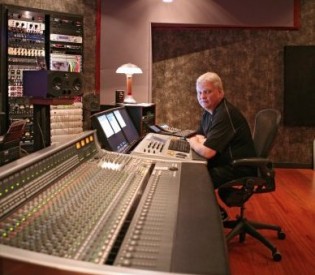
We have interviewed several of the bands he’s recorded and therefore were especially happy to hear from producer Michael Wagener recently. Michael is world-famous for creating the sound of so many bands that have defined rock over the last three decades and you probably remember reading many an album crediting his company Double Trouble Productions since he’s been involved in albums that total over 90 MILLION sales. He still continues to record amazing music both with newer bands like Hydrogyn and classic favorites like Skid Row. We called Michael for a nice little conversation while he had a moment to step away from his fantastic state of the art studio, WIREWORLD in Nashville and found out quite a bit about his part in some of the best albums to ever blare out of your car stereo. Read on…..
Legendary Rock Interviews: You go way back with the ACCEPT guys not only producing but having been the band’s original guitarist until you were drafted by the Army when you were 18 . You were schoolmates of theirs and I was just wondering what it was like growing up with Udo back in Germany?
Michael Wagener: Oh, it was a lot of fun actually! Udo and I have known each other since we were like 6 or 7 years old and it was as you can imagine a lot of fun the two of us had just being kids and getting wild and having a good time. Eventually, that’s how we ended up getting the band together back in the late sixties called “Band X” which later became ACCEPT.
LRI: The band definitely has carved its place in music history and is really one of those bands that had a unique power to it. Did you sense that the band’s music was tapped into something that was a little louder, heavier or stronger than other things going on?
MW: Not really heavier exactly but definitely the sense that they had their own thing going on, their own sound. Judas Priest was out there but ACCEPT sort of had their own thing in addition to having great songs and great musicians. I think from the beginning Udo’s voice was the main point. Wolf is a great guitar player, there is no DOUBT of that but I think if you really think about that band or any band for that matter, the identifying mark is always the singer.
LRI: How did you end up leaving Germany to move to the United States?
MW: I met Don Dokken over at my studio in Hamburg, Germany. We met and really hit it off right away and he invited me over so when I came over here with him I just decided fairly quickly that this was the place to be and a few years later I finally made the move permanently.
LRI: Did you initially get settled into the scene that was happening out in L.A.?
MW: I initially slept on Don’s couch (laughs). I finally ended up renting my own place but it started right there for sure. I was there in L.A. for twelve years.
LRI: I have talked with Don before, he was one of my first interviews and even back then he didn’t mince words when talking or taking stabs at George Lynch and likewise George about Don. What on earth was it like to be a part of those sessions where the two of them were making this great music but CLEARLY not getting along personally?
MW: Well you just had to work accordingly you know. It was sometimes very difficult because there were egos involved and egos are definitely important and a big part of stage presence but they should not be a factor in the studio environment or recording work. It made it much more difficult to work but I do think also that it also contributed to the end result and the quality of performances in the final results of those records though. Those feelings of tension and strife in the studio can be used to an advantage because it does end up translating to the final product, the records you hold in your hand. I don’t think it was a case of conscious competitiveness or anything it’s more under the surface, the way you are singing or the way you are playing as a result of that tension in the air. It wasn’t necessarily the case of Don cutting a vocal and going “I’m gonna show him” as much as it was a normal thing we all feel, if you are pissed off and working the tendency is to imprint that anger on the world around you.
LRI: You produced one of my favorite ACCEPT albums, BREAKER, and one of my favorite songs, SON OF A BITCH. Was it even more easy than imaginable to work with the guys based on the fact that you already had that longstanding relationship?
MW: Yeah, absolutely. We were just friends and we had a lot of fun making that record and that song in particular. The guys are also fantastic musicians so it is pretty straightforward whenever you can start with a great song and have great players to track it. I always think it’s really important for any band I work with to have fun in the studio and that was certainly fun but those guys are also very hard workers.
LRI: You worked with ALICE COOPER on two of his records as well as two of his guitarist KANE ROBERTS solo albums. Kane had very strong feelings about you and your work when we talked to him. Did you enjoy that era?
MW: Without a doubt. Kane is a brilliant, brilliant person. We are still good friends to this day and in addition to being very, very, smart he is of course an amazing guitar player and singer. He really brought a LOT to those Alice albums and of all the people I knew from L.A. he is one of the three people who I still talk to on a very regular basis. We became really close friends both inside and outside the music business. Kane is just an amazing and outstanding individual and one of the most genuine people I have had the pleasure of knowing. He’s really well-rounded and not only does great music but works with movies and games and is very, very talented and smart at computer graphics and art. When we were doing his first album he would come over to my house because I had a computer back then and it was like one of the first Apple computers and Kane was like “How do you turn it on?”. He is such a fast study that not soon after he was designing games and graphics and all that and I was just amazed (laughs).
LRI: Was it more of a challenge to try to BREAK a new artist like Kane or try to RE-ESTABLISH an artist like Alice Cooper?
MW: Hmmm. Well, you always try to do your best, always in any situation you try to do what you feel is right whether it is a new artist or an established legend. I think what some people don’t understand is that there are SO many variable and lights that have to turn green in order to make a record successful. The A&R has to be right, the promotion has to be right, the tour has to be right and on my end the production HAS to be right. It depends on all of those things and more, sometimes it works and sometimes it doesn’t. I think, speaking of Kane for example, those two solo albums Kane did NEVER got the attention or the appreciation that they really deserve. I truly feel that way and I think they are awesome albums.
LRI: Well, I agree with that especially the second album but I also think that those two Alice Cooper albums are criminally underrated.
MW: Yeah, yeah you are probably right and I think that was just the time, the moment wasn’t exactly right. Like I said, for some reason, sometimes it works and sometimes it doesn’t and a lot of times it really doesn’t have anything to do with how good the songs are because there are definitely some great songs on CONSTRICTOR and RAISE YOUR FIST AND YELL.
LRI: Having said all that, you have been a part of several bands’ BIGGEST albums including SKID ROW and WHITE LION. You worked with EXTREME on their biggest album PORNOGRAFFITTI. Their first album generated a decent buzz but nothing like what happened on the second album, did that surprise you at all?
MW: No. There are some times when you are working in the studio that you just have THAT feeling and you know, you are certain, that the project is going to do well, the strange thing is that I had those feelings working with EXTREME but also had those same feelings working with Kane so that goes back to how hard it is to gauge. I remember working on that album with EXTREME and knowing how good it sounded and how strong it felt to me while we were recording it and you just hope that if you are having that experience then it will translate to the person on the street. If you are getting goosebumps in the studio creating it there is a good chance the public will feel the same way provided they get the chance to hear it.
LRI: That album was such a strange crossover for that band. I remember reading about how they sold many, many albums to housewives and the like who put it on and found out that “More than Words” was surrounded by countless crazy guitar heavy hard rock songs. There was a whole audience of people exposed to that band other than the people who were Nuno fanatics like myself.
MW: Yes, but it’s ALWAYS been my experience that ballads have that ability. They are always potentially the biggest songs of a band’s career. Look at the Scorpions, look at Warrant, Motley Crue even. That is typically the case and “More Than Words” was a great, great ballad. That song being huge was exactly what I expected when the record company decided to run with it for a single and video. That’s just how it goes.
LRI: I would really like to interview the guys from King’s X but just haven’t for whatever reason. I saw them live back when they were just starting to make a dent and you produced them as well. I think that they are one of the most powerful bands and talented bands around but for whatever reason it seems like mainstream success just wasn’t in the cards although they did very well overseas. Did you enjoy being a part of their creative process in session?
MW: They are really artistic and amazing guys, absolutely amazing Ty, Dug, and Jerry. What comes out of that trio is like mind-boggling to tell the truth, I completely agree with you and your assessment. They were producing and engineering their own records for the pair of records they did before I got involved and they were more than happy to have someone there to handle the production and engineering end of things so that they could totally concentrate on their art. I think you can tell that the band played with a little more liberated feeling on the work we did, they weren’t concerning themselves with anything other than just creating and playing. That band was playing amazing, let me tell you, it was a lot of fun just watching them play.
LRI: You have done so much work and have such a resume does it bother you when people tell you that they love your work on the original Leathur Records version of TOO FAST FOR LOVE by Motley Crue?
MW: No, not at all. That would never bother me, absolutely not, I think it’s a great, great album.
LRI: Well, the reason I ask is because I told Tommy it was my favorite album and asked him to sign it and he said to me “Dude, all I hear when I listen to that is how many fucking mistakes I made on there.” It was a long time ago and it IS a pretty raw album.
MW: Yeah but they were a very young band and sometimes the things that stand out to listeners are the things that make artists cringe. Sometimes the mistakes are what are really good and real about an album. Tommy is an exceptional, extraordinary drummer and is very hard on his own performances as well. I think that album is really cool. I knew Mick Mars from well before that. We had worked on some things when he was still in his band Whitehorse, well before Motley Crue he had been playing in these other bands and I knew Mick and had worked with him on some demos and stuff. We stayed in touch and I ran into him one time when I was on vacation actually and he says to me “Hey, you gotta work on my album Michael. I’m in this band now called Motley Crue and we recorded our record and it’s finished but it has to be mixed” and I was there for the mixing which was all done on a Soundcraft console and it was a lot of fun to work on. The guys would come in to the studio in the evenings and listen to the mix of each individual song and be like “Yeah, that’s cool, let’s move on”. Mick was around the process a little bit more than the others at that time but it wasn’t difficult to deal with any of them, they were friends and they were CRAZY as hell, that much is true. We had a really good time and they knew how to have a good time which I thought was really cool. I’m really glad and proud to have been a part of that album, I am really happy to have been there at that time for them.
LRI: The video “DON’T BLAME ME” sort of documents the making of the “NO MORE TEARS” album from Ozzy that you mixed. It looked like the production was laborious and kind of time-consuming. Was the mix of that album considerably easy and do you think the people that attack Ozzy’s intelligence or creativity are full of shit?
MW: Absolutely on both counts. The album had already been recorded for the THIRD time by the time I was involved so I just got the tapes and did a test mix. They did a good job on the production both times but the mix could have been better which is when the label came to me and asked if I thought I could do a test mix. Everybody liked the test mix so I remixed the whole album. The process was similar to the MOTLEY process where Ozzy would come in around 6 or so in the evening and listen to each mix of each song and either say he liked it or talk about what he’d like to change and that was it. That album was very easy, Ozzy was fantastic to deal with and never , ever was there a problem on our end working with those guys, even again on the OZZMOSIS album because he had such an amazing band and he is such a serious worker. It was easy to get a good sound. The late Randy Castillo, Zakk Wylde, Mike Inez, where would you find a band better than that to work with? A lot of people have some pretty strong opinions about Ozzy that are pretty unfounded and I think a lot of it goes back to that Osbournes show where some of the situations and edits would make him look stupid. He is a very good worker and a smart guy who knows exactly what he wants and takes his craft very seriously, he was fantastic to work with in the studio and is a great performer. It is tremendous what he has done and that he is still around after all these years and I think people have underestimated his musical intelligence at times. He is very smart and was very much a part of the band sound and the direction of every project I have ever worked with him on.
LRI: Did you see something in your time working with Poison on their debut mix that would indicate the massive success they would achieve?
MW: Well, they were fun. They were obviously a “party” band and that is sometimes hit and miss but in their case I think it was so evident and part of their personality as a band from the beginning that it was a major hit. I think that changed as time went on but in the beginning you would have to admit they are one of the best examples of a good time “party” band and people respond to that when it’s real. The thing with that band is that they really did an amazing job of putting that over live, they were always one big party in concert and people just felt like they were a part of it all.
LRI: You recorded the self-titled debut of SKID ROW which is now considered a classic. That album was recorded up around our neck of the woods in Wisconsin and still sounds fantastic. What was that band like back in those days?
MW: It was pretty wild I mean SKID ROW were a young band and Sebastian in particular I think was 18 when we were up there recording. We did a few weeks of pre-production in a studio in New Jersey just fleshing out the material before heading up to Lake Geneva. We went from probably about twenty songs down to the twelve that finally got recorded. You could see the potential in the band and the potential in those songs and they had amazing management with Doc McGhee and so all of those lights were already on green and then you just had to capture them recording the songs and having fun, which they were. They were working very hard and there were no drugs or alcohol in the studio but still they were having a blast. They are fun guys, Rachel is still my brother to this day (laughs).
LRI: There is a world of difference in the material that was on the debut and the second album SLAVE TO THE GRIND. Do you remember any major differences in approach?
MW: No, not really it was just a natural progression, a little more aggressive for sure. It was also a little hard in the sense that if you sell ten million albums on your first album there is a LITTLE bit of pressure involved in the expectations of your second album. There was a little more stress the second time around due to the success of the debut but other than that we still had fun and did things pretty similar to the debut other than the fact that we did preproduction basically at Sebastian’s house. We started there as far as working out the material and all that, then we went to one studio and worked on demos before the actual final recording sessions.
LRI: You basically had a front row seat during SKID ROW’s rise and will always be associated with those guys. They are one of those bands who have had people clamoring for a reunion with Sebastian despite the fact that both the SKID ROW guys and Sebastian seem to be pretty adamant about not doing a reunion. Were they a pretty tight-knit unit during the time that you worked with them, was there any separation between them and Sebastian or were they pretty much a gang?
MW: I thought they were a very tight-knit band, they got along great and were always together absolutely. That band when they came out had the success they did based on the chemistry within the band and if you break that up it is never really the same and that’s the case with a few bands that come to mind including SKID ROW. It never really works right when you break up that original lineup, a lot of the band chemistry goes away except in the rare instances of a band like AC/DC which wasn’t really a break-up at all. When you start messing with the chemistry for a lot of these bands, especially with lead singers, it tends to be a problem for the fans who were so attached to that initial taste of the band.
LRI: You were involved in one of the heavier albums in WARRANT’s catalog when you produced DOG EAT DOG. Some have rumored that the sessions for that album were the first time the other WARRANT guys were truly involved in the studio and writing process. What were your experiences working with Jerry, Joey, Steven and Erik?
MW: It was great and I think that rumor is a myth and I think they were ALWAYS involved in every recording that band released. I had heard that too but I truly do not believe it because they are all really good players and perfectly capable of recording their own stuff. In any case, they were absolutely involved in every process of the DOG EAT DOG album and there was not ONE note from an outside musician or performer on that album, it was only the band. I can’t definitively speak on that because I didn’t make the first two albums but I cannot believe it because you can hear the musicianship of each individual member on their respective instruments on the album I did with them and in their live show. The thing that always stuck out to me about WARRANT is that they always were a heavy band, always it’s just that their record company and the powers that be never really fostered that or put it across. They were always much harder than what wound up on their albums and much deeper and we finally made the album they always WANTED to make which was very satisfying. Jani was always a tremendous writer and amazing singer but also very fortunate that band was always tight and always very hard rock.
LRI: The last band I wanted to ask you about was WHITE LION. That is another band that you are synonymous with along with SKID ROW. We spoke with Greg D’Angelo who, like all of your artists, had a very high opinion of your work and part in the band. What would it take to bring Vito Bratta and Mike Tramp back together again, is that something that you think could happen at some point?
MW: Well, that’s a great question but I don’t think anyone can answer it other than Vito himself (laughs). If he doesn’t wanna play guitar anymore that’s his thing I guess but in my mind he is one of THE best players I have ever had the pleasure of working with and I have worked with a few REALLY good guys (laughs). Vito is right up there with any of the greats but if he doesn’t wanna play I gotta respect that as his decision. I personally would LOVE to do another record with those guys and that lineup with Vito intact but if he doesn’t want to play anymore than it’s out of my hands and I can’t do anything about it and I don’t even wanna try (laughs).
LRI: Do you think that the major issues between the guys happened well after “PRIDE” or “BIG GAME”?
MW: Yes, they were very much a gang during the times I worked with them and very much on the same page. There is an international thing in that Mike is Danish and the other guys are New Yorkers which does cause some confusion sometimes but then I’m German so we got over that pretty quick and were able to work well together.
Category: Interviews
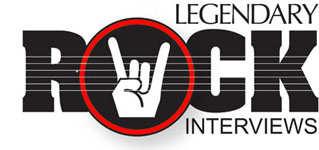
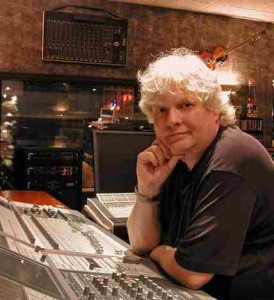
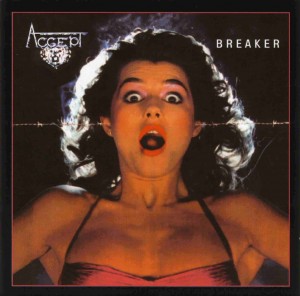
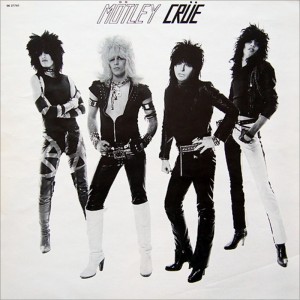
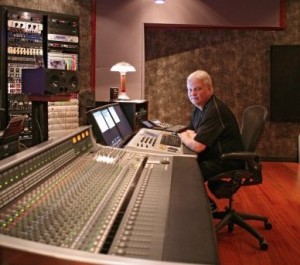


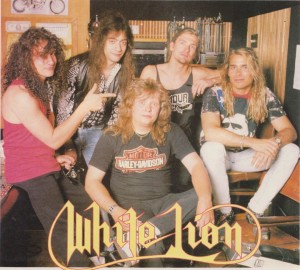



Such a pro. Great producer. You covered almost all of the bands he worked with but no questions about the one and only master of puppets. Nice interview though!